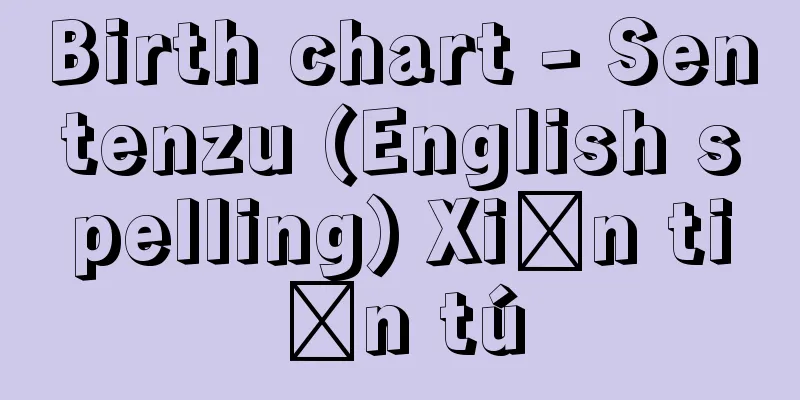Emperor Yuan

|
276‐322 First emperor of the Eastern Jin dynasty in China. Reigned 317-322. His surname was Sima Rui, and his temple name was Zhongzong. He was the great-grandson of Emperor Xuan, Sima Yi. Towards the end of the Eight Kings' Rebellion, he established a shogunate in Xiapi (Jiangsu Province) and controlled the military power of Yangzhou (Jiangsu, Zhejiang, Anhui, Jiangxi). In 307 (the first year of the Yongjia era), when the chaos in northern China intensified, he moved his capital to Jianye (Nanjing) following the plan of the famous minister Wang Dao. He invited exiled aristocrats and powerful clans from the Sanwu region to his base and tried to win the hearts of the people. At the same time, he cleverly used the conflicts between the powerful clans to solidify his power and became the leader of the Jin faction. Emperor YuanThe third emperor of the Southern Liang Dynasty in China. Reigned 552-554. His surname was Xiao Yi. He was the seventh son of Emperor Wu. When Hou Jing's rebellion broke out, he rallied exiled aristocrats in Jiangling (Hubei Province) while he was there, and succeeded to the throne after Hou Jing's defeat and death. He tried to restore the country's strength with strict governance, but was defeated and killed in an attack by the Western Wei. Tens of thousands of people, including kings and dukes, were abducted to Chang'an as slaves, dealing a major blow to the Southern Dynasty aristocracy. A genius in the arts and sciences, he particularly loved the Laozi and Zhuangzi works, and left behind many writings. He burned all of his library, which numbered tens of thousands of volumes, just before the fall of the city, and is said to have lamented, "The path of literature and martial arts comes to an end tonight." Source: Heibonsha World Encyclopedia, 2nd Edition Information |
|
276‐322 中国,東晋初代の皇帝。在位317‐322年。姓名は司馬睿(しばえい),廟号は中宗,宣帝司馬懿(しばい)の曾孫。八王の乱の末期,下邳(かひ)(江蘇省)に鎮守し幕府を開いて揚州(江蘇,浙江,安徽,江西)の軍事権を統轄した。華北の混乱が一段と激化した307年(永嘉1),名臣王導の計に従って建鄴(南京)に移鎮し,亡命貴族や三呉地方の豪族を幕下に招いて人心収攬に努める一方で,豪族相互の対立を巧妙に利用して勢力を固め,晋側諸勢力の盟主に推された。 げんてい【元帝 Yuán dì】中国,南朝梁の第3代皇帝。在位552‐554年。姓名は蕭繹(しようえき)。武帝第7子。侯景の乱が起こると出鎮中の江陵(湖北省)で亡命貴族らを結集して対抗し,侯景敗死後に即位した。厳政で国勢の回復をはかったが,西魏の攻撃に惨敗して殺された。王公以下の数万人が奴婢とされて長安に拉致され,南朝貴族制は大きな打撃を受けた。学芸の天才で特に老荘を好み,多くの著述を残した。十数万巻の蔵書は落城の直前に全部焼きすて,〈文武の道,今夜窮まる〉と嘆いたという。 出典 株式会社平凡社世界大百科事典 第2版について 情報 |
<<: Limited Approval - Limited Approval
Recommend
Mediatrix
…Christ was conceived in Mary's womb by the H...
OGOC - Oji Oshi
The IOC has also established an Olympic Organisin...
Black tea - Koucha
It is made by fermenting and drying the leaves of...
Cîteaux (English spelling)
…It is a revolutionary monastic order founded in ...
Carmies - Carmies
…Cochineal has long been used as a raw material f...
Leaf sheath
…When the leaf primordium grows a little, the upp...
Blalock, A.
…Surgical treatment of the heart was first perfor...
Matricaria (English spelling) Chrysanthemum parthenium (Matricaria parthenium); feverfew
Japanese name: Feverfew. A perennial plant of the ...
Cucuteni
…The Neolithic and Copper Age cultures of Moldavi...
Proximal muscle atrophy
…In muscle atrophy of the neck, atrophy of the st...
Obira mine
This mine was located in the Ogatacho area of B...
Yaichi Kawakami
Year of death: October 14, 1863 (November 24, 1863...
Giga - giga
It is a unit prefix meaning 10 to the 9th power, w...
Sutei Rekisho - Sutei Rekisho
A calendar book from the Ming dynasty in China. I...
Malignant alopecia - Alopecia maligna
...They may also coalesce to form irregularly sha...









